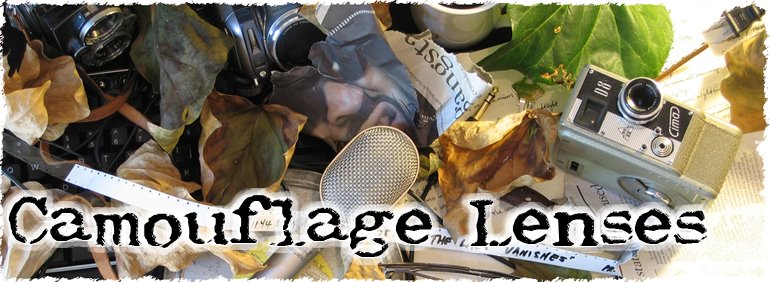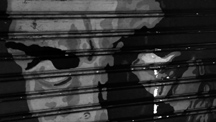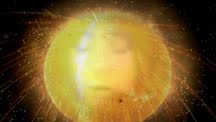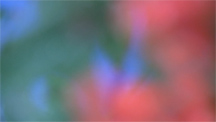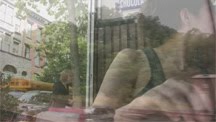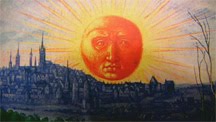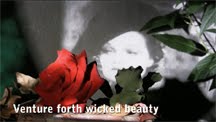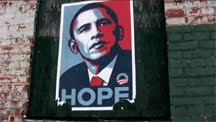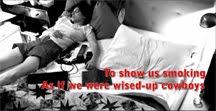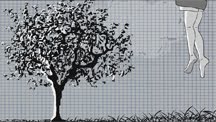Let's record the dying century and the birth of another man… Let's surround the earth with our cameras, hand in hand, lovingly; our camera is our third eye that will lead us out and through … Nothing should be left unshown or unseen, dirty or clean: Let us see and go further, out of the swamps and into the sun.Since the 1950s, Jonas Mekas has been preserving and showing avant-garde films, writing about films, and making films. He was one of the founders of the Anthology Film Archives in 1969 which preserves and displays many types of independent film. He also wrote film reviews in the Village Voice starting in 1958.Jonas Mekas
His own films were first shot on a 16mm Bolex camera. Then, in the 1990s, he began to shoot on video. He films his daily life as a sort of diary. Sometimes he puts shots together to make a longer piece. In 2007 he even decided to make 365 films - one film per day - and post them all on his web site, www.jonasmekas.com.
Here are a few of those 365 films:
I think they qualify as cinegrams.
Mekas is sometimes called 'the godfather of American avant-garde cinema.' I'm not sure what that means, but he is certainly a man who loves what he does and this unusual quality shows through in every single frame of footage that I have seen so far. Here's a guy who sees how one can hold a small camera up to the world and press a little button and voila - something beautiful is made! Some of the French New Wave directors in the 50s and 60s thought that cinema would become a real art when the camera became as easy to acquire and handle as an ink pen. Mr. Mekas is using video, film and the internet the way any young filmmaker should instinctively want to use these things. The most dreary sight in the world is a pair of young writers sitting in a Starbucks with a laptop trying to be the next hot screenwriting duo. The most exciting sight is someone running around with a camera making cinema.
Here is a poem by Jonas Mekas:
Old is rain gushing down shrubstems
Old is rain gushing down shrubstems,
cockgrouse drumming in the red summer dawn.
Old is our talk of this.
And of the fields, yellowing barley and oats,
the cowherd fires wetblown in lonesome autumn.
Of the potato digs,
the heavy summer heat,
white winter glare and sleigh-din down unending roads.
Of heavy timber hauls, stony fallows,
the red brick ovens and outlying limerock.
Then – by the evening lamps, in autumn, while fields turn gray –
of wagonloads ready for tomorrow's market,
the roads, in October, washed out and swamped,
the potato digs drenched.
Old is our life here, long generations
pacing the fields off, wearing down plowland,
each foot of earth able to speak, still breathing of fathers.
Out of these cool stone wells
they drew water for their returning herds,
and when the flooring in the place wore down,
or the housewall quietly started to crumble, they dug their
yellow clay form the same pits,
their sand gold-fresh from the same fields.
And even with us gone
there will be others, sitting out on blue fieldstones,
mowing the overgrown meadows, plowing these plains,
and when they come in at the end of their day and sit down to the tables,
each table, each clay jug,
each beam in the wall will speak,
they'll have the sprawling yellow sandbanks to remember,
and ryefields swaying in the wind,
the sad songs of our women from the far side of a flax field,
and one smell, on first entering a new parlor,
the scent of fresh moss!
Oh, old is the flowering clover,
horses snorting in the summer night,
rollers, harrows and plows scouring tillage,
the heavy millstones rumbling,
and women weeding the rows, their kerchiefs glimmering white.
Old is rain gushing down shrubstems,
cockgrouse drumming in the red summer dawn.
Old is our talk of all this.
Translated by Vyt Bakaitis
